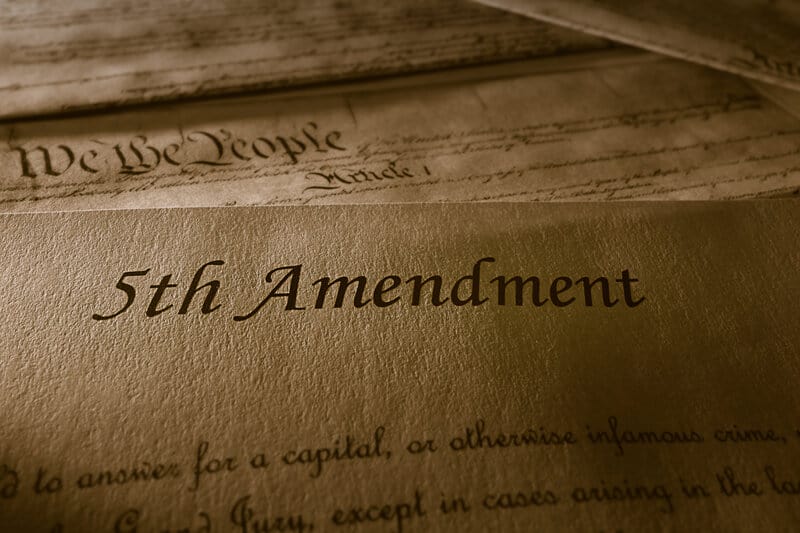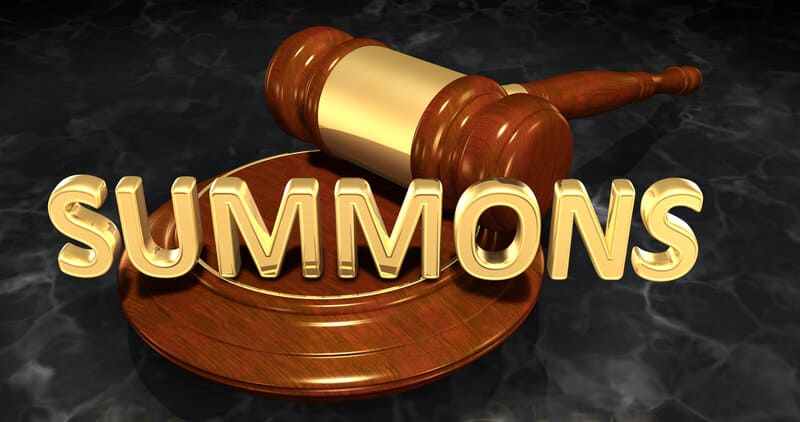Attacking the CID Summons Through the 5th Amendment

A criminal tax case often begins when the Criminal Investigation Division of the IRS (CID) serves a summons on the taxpayer. The summons will ask the taxpayer to produce various documents relevant to their investigation. Often these documents will include business records, bank records, partnership agreements and other correspondence. The summons will provide the taxpayer with a date in which the documents must be produced. A failure to produce the documents in a timely manner, or make other arrangements with the agent, can lead to a show cause hearing in federal court.
Often, the documents requested contain incriminating information. For example, the IRS may request bank records for an offshore account the taxpayer did not disclose to the government or register slips for a restaurant detailing cash sales for the taxable year. A taxpayer is often left with two decisions: fail to comply with the summons or provide the government with documentation that will certainly be used against him in the criminal tax proceedings.
The Fifth Amendment to the United States Constitution provides that no person shall be compelled to be a witness against himself. The most common application of this right revolves around a defendant’s right to remain silent during investigations or refuse to testify in trial. The law surrounding these two areas is immense and often well understood by defense attorneys. However, the application of the right against self-incrimination to the production of documents is less clear. The Courts of Appeals continue to fine tune the intersection of the Fifth Amendment and document production. A recent case in the Eighth Circuit highlights the main areas of concern for criminal tax litigants, and their likelihood of success in challenging summonses in federal court.
This post will cover the facts and law surrounding the Eighth Circuit’s decision in United States v. Fridman, 2020 U.S. App. LEXIS 28449, and provide insight into using the Fifth Amendment to ensure criminal tax clients are not waiving their Fifth Amendment rights during document production. Other posts written by our criminal tax attorneys are located at our pages devoted to criminal tax, tax fraud, and tax evasion.
The Facts of Fridman
Fridman was a United States citizen with the duty to pay taxes and otherwise comply with the U.S. tax code. For multiple years, Fridman provided various documentation to the IRS through random civil audits. During this production, Fridman provided the government with documents confirming the existence of multiple offshore bank accounts. Fridman had ownership and signature authority over each account. These accounts included three accounts in Switzerland, one account in Israel, and one in Luxembourg.
The tax code requires a taxpayer to report all offshore accounts where the taxpayer has ownership/signature authority and the balance exceeded $10,000 in any one day during the tax year (a more thorough review of the FBAR requirement can be found here). These accounts clearly met the threshold for the FBAR requirement. Armed with this knowledge, the CID opened an investigation.
The CID served two separate summonses on Fridman. The summonses requested various documents including bank records for the offshore accounts. Fridman challenged the summonses claiming the Fifth Amendment protected him from forced disclosure of incriminating information.
The Act of Production and the Right Against Self-Incrimination
In Fisher, the Supreme Court ruled Fifth Amendment protections do not apply to the contents of documents created prior to a government request. In other words, a criminal tax defendant may not challenge a summons by complaining the contents of the documents are incriminating. However, the Supreme Court has recognized the Fifth Amendment applies to the physical act of production. When the government is forcing someone to submit documents, they are compelling the person to provide information against their own penal interest. The case law refers to this concept as the act of production privilege. The act of production is the starting point for all challenges to summonses under the Fifth Amendment.
The Supreme Court has defined the act of production privilege as very narrow. Further, there are no bright line rules provided by the highest court on how a lower court should determine whether the privilege applies. Simply put, the privilege is determined on a case by case basis using the legal standards promulgated in the individual circuit courts across the country. This makes for a messy area of the law, but also leaves the door open to unique and creative challenges for criminal tax lawyers. Below, we will look at how the Eighth Circuit applied their standards to the facts in Fridman.
The Exceptions to the Act of Production Privilege
The Eighth Circuit started with an assumption that the documents were subject to the act of production privilege. Next, they looked to the delineated exceptions to determine if the privilege should apply under a given set of facts.
In Fridman, the Eighth Circuit analyzed the summonses under the Foregone Conclusion exception to the privilege.
Foregone Conclusion Doctrine
The foregone conclusion exception applies when the existence and location of the documents are a foregone conclusion and the criminal tax defendant adds little to the sum of the government’s information by conceding possession of the papers. The Eighth Circuit looks at three factors when determining if the foregone conclusion exception applies: 1) government’s knowledge of the documents’ existence, 2) the taxpayers’ control or possession of the documents, and 3) whether the government can prove authenticity without a statement from the taxpayer. All three of these factors must be present when the summons is issued.
Knowledge of Existence
In Fridman, the government was requesting bank records, open and close slips, and other documents relating to the offshore bank accounts. The Court found the government knew of the existence of these documents because they were customary documents that must exist for a bank account and similar documents had been provided to the IRS in a civil audit a year before the summons was issued. It is not required that the government prove knowledge of each individual document requested. They only need to prove knowledge that a set of documents exists for a given bank account. Opening slips and account statements will meet this element in almost every case. Since content is not protected by the Fifth Amendment, the government does not need to show any knowledge relating to the content of the documents.

Taxpayer Control of the Documents
The Court will find the taxpayer has control of the documents if the government produces evidence showing the taxpayer has the authority to receive the documents for the account or has actual possession. Here, Fridman was the owner of all the accounts in question. There was no doubt Fridman had authority to access these documents even if no actual possession could be proven.
Continued Existence and Control
Under certain factual scenarios, the government’s evidence showing existence and control may be too far removed in time to support the summons. The government needs to not only show existence and control, but also, that the existence and control is continuing until the date of the summons. Here, the Court found the government met the continued existence and control standard for three reasons: 1) the government provided evidence showing Fridman possessed the documents prior to the issuance of the summons, 2) there were no intervening acts supporting a break in control, and 3) only 13 months had passed between Fridman turning over similar documents in the civil audit and the summons being issued.
In most cases, showing a continuation of control and existence will be easy for the government. However, there are fact patterns where this challenge may be successful. If the government produced evidence an account existed in 2002, and requested the documents in 2020, there is a great argument their evidence is not close enough in time to support continued existence or control. Further, if an intervening act/condition called the government’s evidence into question, this element may be useful in quashing the summons on Fifth Amendment grounds.
In most cases, the proof of existence and control will be clear, and no sufficient intervening act will exist. However, criminal tax attorneys should be mindful of any long lapses in time between the evidence proffered and the issuance of the summons.
Authentication of Documents Requested
The final element looks at whether the government can authenticate the documents received without assistance from the taxpayer. The Court concluded the government would be able to authenticate the documents through third parties or by comparing the newly received documents to records in their custody.
Conclusion
The Eighth Circuit upheld the district court’s decision to deny the criminal tax defendant’s challenge to the summons on Fifth Amendment grounds. Based on the opinion, it will be difficult for any defendant to use the Fifth Amendment to challenge a summons for bank records. By their nature, they easily meet the elements of the foregone conclusion exception – they are always in existence, control can be proven with ownership or signature authority, and a third party will be capable of authentication in most instances.
Most bank records will have to be produced. However, more sensitive business documents may not fall so neatly under the exceptions to the act of production privilege. Criminal tax lawyers should review all summonses to ensure their clients are not giving up a valuable constitutional right in the investigative process.
